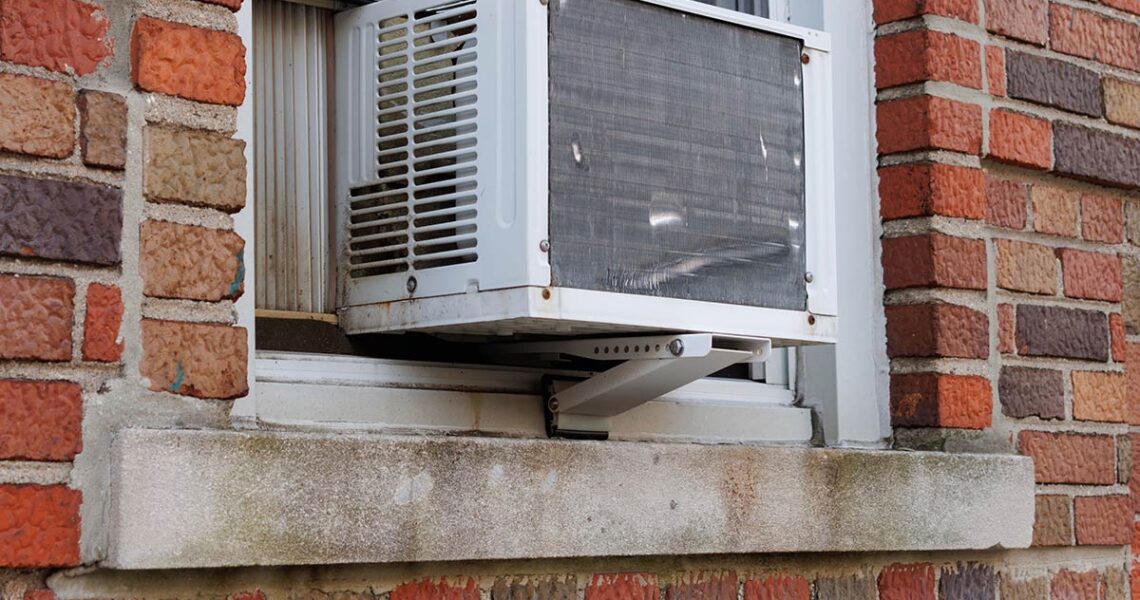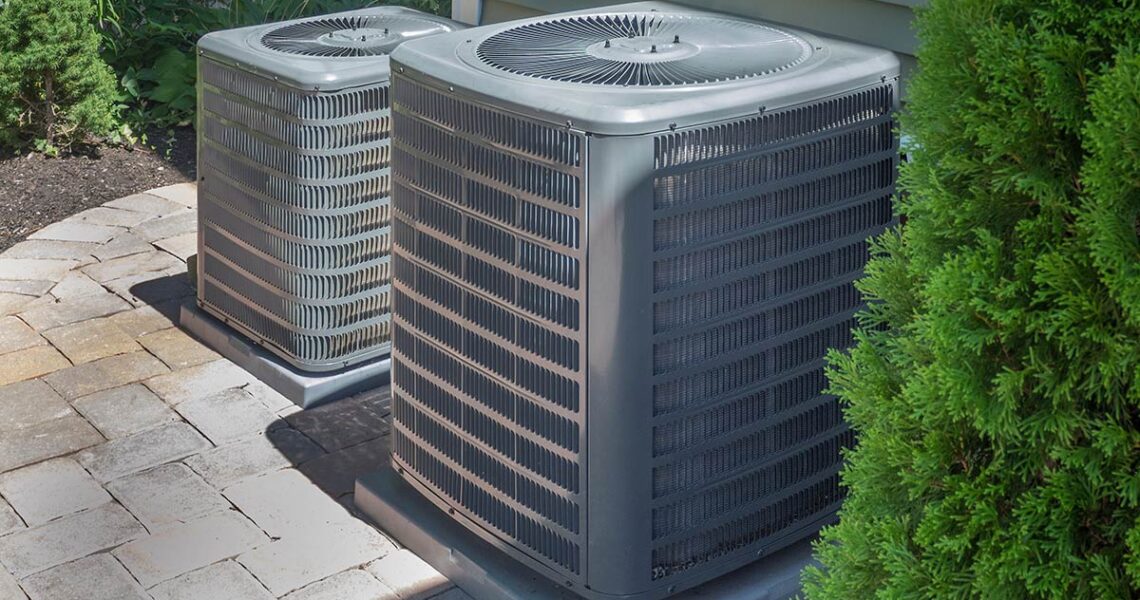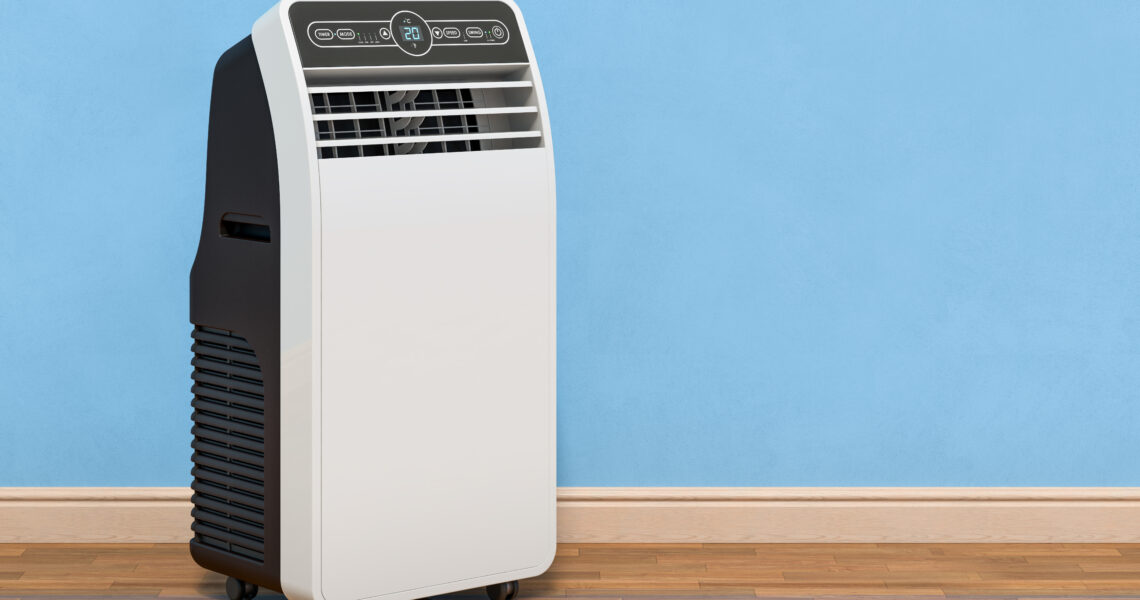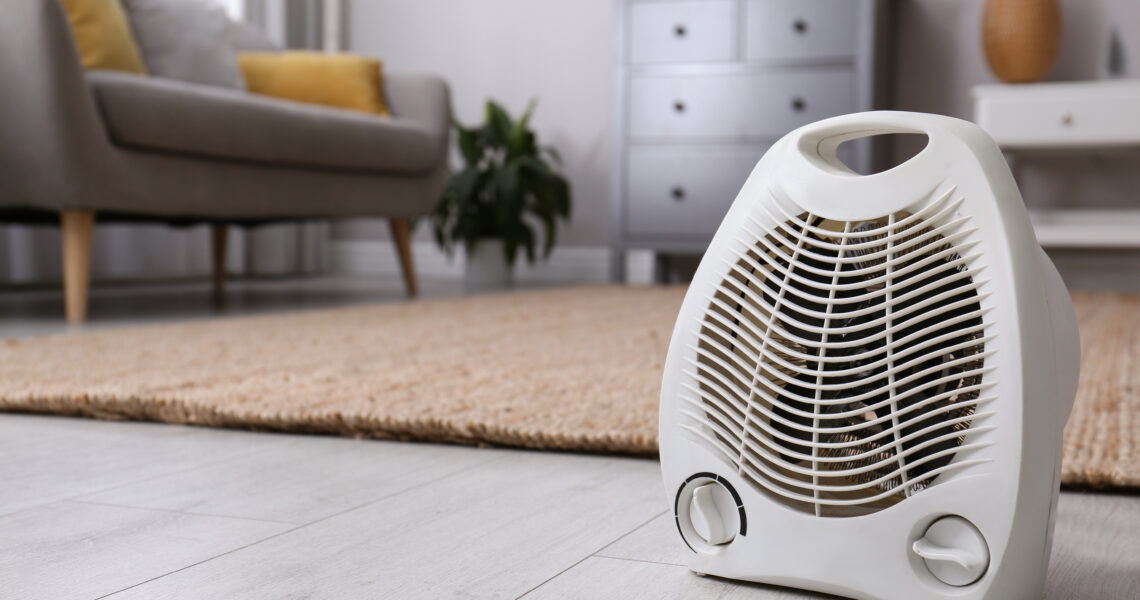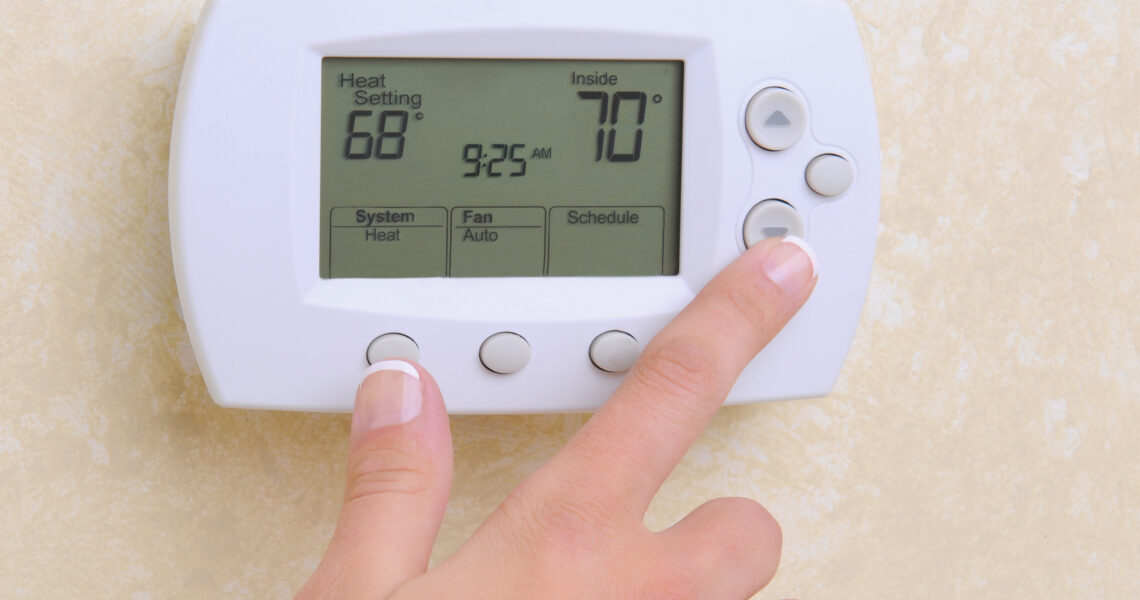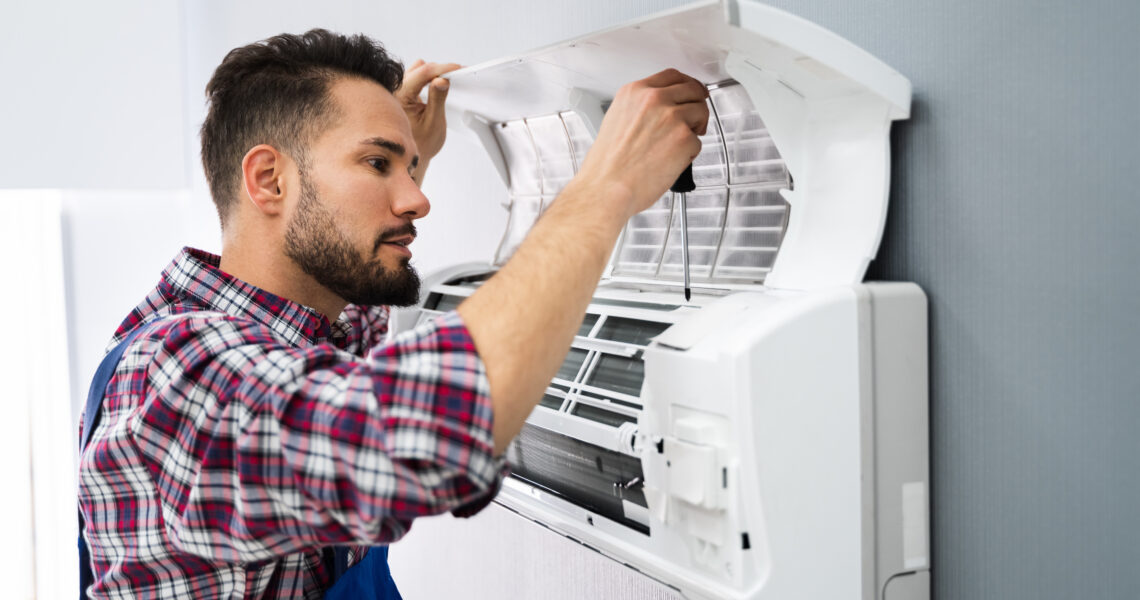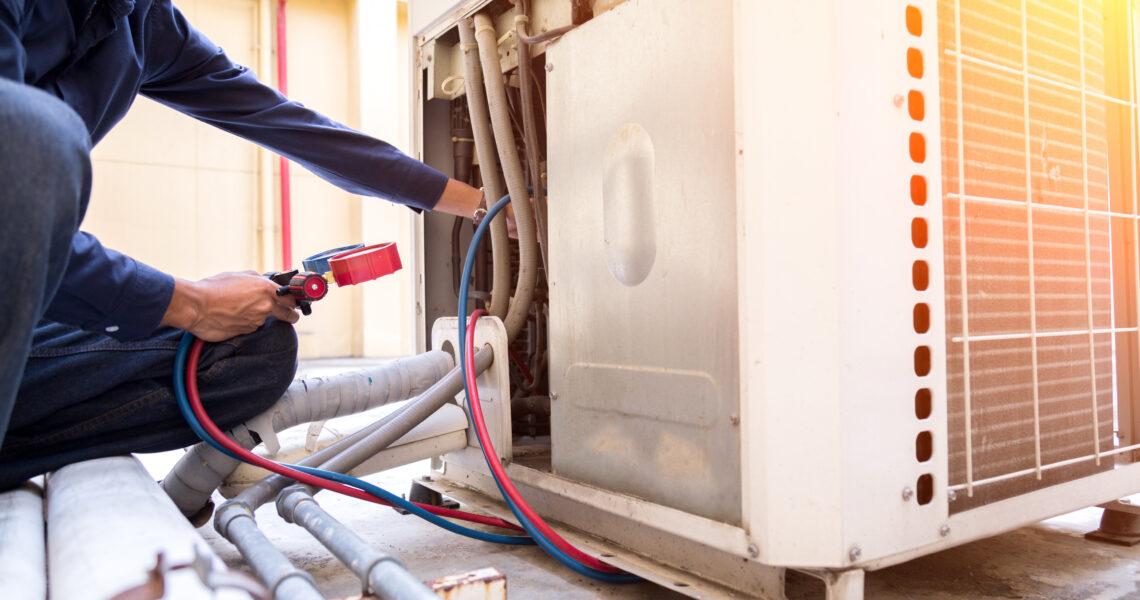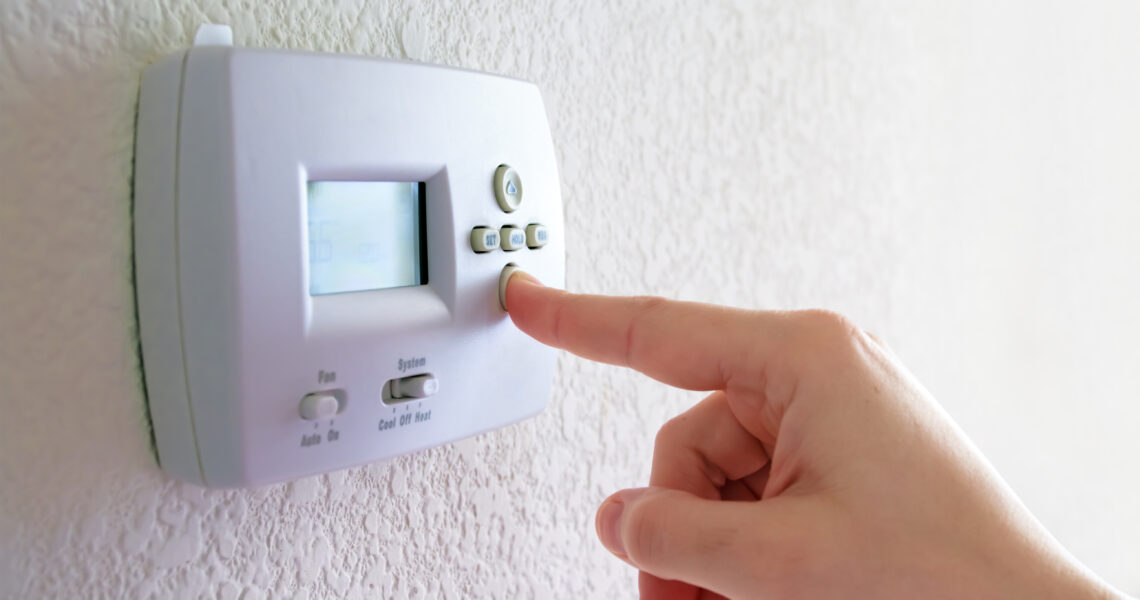How to Clean Your Window AC Unit
When the weather heats up, trust your window air conditioner to keep you and your family chilled. But if it’s been a while since you serviced yours, now is an ideal time to show some TLC. Cleaning your AC on the regular not only ensures that it runs energy-efficiently but also combats mold growth which can have dangerous health effects. Keep cool all summer long by maintaining a clean unit!
What is the Average Life of a Central Air Conditioning System?
When scouting a new air conditioner or experiencing an issue with their current system, one of the more frequent inquiries homeowners pose is, “How long do AC units typically last?” While most HVAC companies strive to make their products dependable through thorough testing and optimization, this answer can be intricate.
How Do Portable Air Conditioners Work?
Freestanding portable air conditioners, equipped with casters or wheels and a vent to fit in nearby window frames, are the ideal solution for when you need to move your AC from room-to-room. Not only do they provide optimal comfort during hotter months by circulating airflow throughout the immediate area […]
Which Type of Heater is Cheapest to Run?
It’s important to be conscious about our energy usage – it helps us look after both the planet and our bills.
Searching for the ideal electric heater can be daunting, with so many varieties available. It’s important to select one that is tailored to your specific needs and has a high energy efficiency rating.
If you’re in the market for an energy efficient heater to keep your home warm, or if you simply want to explore the electric heating options available, then look no further! Here is a detailed overview of each type of electric heater with their associated benefits and running costs.
Halogen Heaters
Halogen Heaters are perfect for swiftly warming a space. Their name is derived from the halogen element within the heater’s bulb or lamp, which generates heat when combined with electricity and emits radiant warmth. This type of heat is ideal if you need to quickly warm up an area but won’t be as effective in heating an entire room evenly.
Halogen heaters are among the most cost-effective electric heater options, with a typical power output of 1200W. Their immediate warmth in close proximity saves energy by not needing to be left running for long stretches of time.
Convector Heaters
Convector heaters are a perfect solution for heating up medium to small-sized spaces with consistent warmth. This is achieved through convection, an efficient mechanism that works by allowing the warm air inside of your home to ascend while drawing cool air into the base of the heater where its temperature will be amplified and then expelled at it’s top.
Although convection heaters take a little bit more time to provide warmth than models like halogen heaters, the payoff is worth it. The entire room will be evenly heated and since most of these varieties have an output power of 2000W, they may be pricier to operate. Furthermore, you’ll likely need to keep them on longer compared with radiant heater systems.
Equipped with a built-in thermostat control, convector heaters give you the power to accurately regulate their heat and energy output for optimum efficiency.
Oil Filled Radiators
Oil-filled radiators are perfect for a sustained warmth. Through their unique thermodynamic process, these units employ an electric heating element submerged in oil to warm the radiator body and then transfer that heat into your room – both through convection and radiation. When switched on, you can feel the results almost instantaneously!
Oil-filled radiators offer a wide range of wattage and prices, but the primary benefit is their thermostatic control. This means that users can customize how much heat they want to produce and make sure that energy consumption is kept at an optimal level. Given its power saving features, this heating source has been shown to be one of the most economically viable options available!
Furthermore, oil-filled radiators are much more efficient at retaining heat than other types of room heaters; which means that the radiator will still give off warmth for some time after the switch has been turned off. For cost estimation purposes, we have estimated an average wattage of 1500W when it comes to running an oil-filled radiator.
Fan Heaters
Quickly heating a small room? Look no further than fan heaters! Cold air travels into the back of the heater, where it passes over an electric element that warms it before being expelled from the front by an internal fan.
Fan heaters are the perfect choice of heater for those who want to quickly and efficiently warm up a room. With its powerful fan, warm air can circulate at greater distances faster than other types of heaters. While it does produce some noise during operation, these handy machines may be found with thermostatic control and will typically come in 2000W models.
Conclusion
After evaluating the various kinds of electric heaters on the market, it is clear that halogen heaters are most cost-effective to run due to their lower power output. Though many of the higher wattage models come with inbuilt thermostats and timers, allowing you to manage how much energy they use and for what duration. This feature helps minimize running expenses significantly! Ultimately, your preference will depend upon finding a heater that suits your needs as well as one which can be used efficiently.
It is important to be mindful that if electric room heaters are used for extended periods, they can become expensive due to the higher cost of electricity compared to gas. These devices produce intense and quick warmth which should only be turned on intermittently in order to warm up a space as opposed using central heating systems for long durations.
Which Type Of Heating Is Most Efficient?
There are a lot of different types of heaters on the market these days. Some heaters are more efficient than others, and some are more expensive to run than others. So, which type of heater is most efficient?
How to Calculate Heating Efficiency
The average electricity prices from April 2020 were used to calculate these kWh (kilowatts per hour) costs for a standard rate. The rates for Economy 7 energy may differ, but this will give you an idea of which types of room heaters have the cheapest running costs.
The Cost of Running an Electric Heater
Electricity is typically charged per kWh, so the cost of running an electric heater will depend on how much electricity it uses. The following table shows the approximate cost of running different types of electric heaters for one hour.
Type of Heater Cost per Hour (kWh)
Infrared Heater 0.10
Oil-Filled Heater 0.15
Storage Heater 0.12
Ceramic Heater 0.13
As you can see from the table, infrared heaters are the most efficient type of heater, followed by storage heaters and ceramic heaters. Oil-filled heaters are the least efficient type of heater.
If you want to save money on your heating costs, then an infrared heater is the best type of heater to choose. An infrared heater will use less electricity than any other type of heater, and so it will be cheaper to run. Not only that, but an infrared heater will also provide you with a more efficient form of heat.
If you are looking for an electric heater that is cheap to run and provides a good level of efficiency, then an infrared heater is the best option. You can find infrared heaters for a reasonable price, and they will save you money on your heating bills.
Infrared Heaters
Infrared heaters are the most efficient type of heater available. They use very little electricity to generate heat, and they provide a lot of heat for their size. Infrared heaters are also very safe to use, as they do not emit any harmful radiation.
Oil-Filled Heaters
Oil-filled heaters are another type of heater that is very efficient. They use oil to generate heat, which means that they do not need to use as much electricity as other types of heaters. Oil-filled heaters also have the advantage of being very safe to use, as they do not emit any harmful radiation.
Storage Heaters
Storage heaters are a type of heater that is designed to save energy. They work by storing energy during off-peak hours, and then releasing it during the day when it is needed. This means that storage heaters can save you money on your electricity bill.
Ceramic Heaters
Ceramic heaters are another type of efficient heater. They work by using ceramic plates to generate heat. Ceramic heaters are more expensive to buy than other types of heaters, but they are very efficient and can save you money in the long run.
Are you in need of heating services or climate assistance?
Call Laureyns United today to get an estimate on heating installation, heating services and maintenance, and anything else that might engage with your home or business climate control system.
What should you set your thermostat at in the winter?
If you’re wondering what temperature is best during the winter, you’re not alone. You want to be comfortable, but also use an efficient temperature that doesn’t potentially increase your energy costs. The best thermostat setting for winter is 68 degrees Fahrenheit when you’re at home. Energy.gov also suggests lowering your thermostat or turning it off entirely when you are away in the winter. Programmable thermostats can help make monitoring your home’s temperature while you’re away easy. The thermostat can be set to start heating shortly before you arrive home, so it’s the ideal temperature when you walk in the door.
In addition to saving money on your energy bill, there are other benefits to using a lower thermostat setting in the winter. A lower temperature can help reduce humidity, which can help prevent mold and mildew from forming. It can also help reduce static electricity, which can be a nuisance in the winter months. So if you’re looking to save money and create a more comfortable environment in your home, consider lowering your thermostat this winter.
What temperature should you keep your house at?
If you’re gone for more than four hours, your home’s temperature can be set even lower or higher to reduce energy waste. But according to the U.S. Department of Energy, you shouldn’t set your thermostat lower than 55 degrees Fahrenheit or higher than 85 degrees Fahrenheit when you’re away from home for an extended period of time. Doing so could put your home at risk for freezing pipes or overheating, which can lead to serious damage.
When it comes to setting your thermostat, there are a few things to keep in mind. First, consider the type of heating and cooling system you have. If you have a heat pump, ENERGYSTAR recommends setting your thermostat to 68 degrees Fahrenheit in the winter. If you have a furnace, they recommend setting it to 70 degrees Fahrenheit.
Second, think about the temperature you’re comfortable with. If 68 degrees is too cold for you, don’t be afraid to turn the thermostat up a few degrees. The most important thing is to find a temperature that’s comfortable for you while also being energy efficient.
And lastly, if you have a programmable thermostat, take advantage of it! You can set your thermostat to lower automatically when you’re away from home or asleep and raise it again shortly before you wake up or come home. This way, you don’t have to worry about manually adjusting the temperature all the time.
Bottom line:
The best thermostat setting for winter is 68 degrees Fahrenheit when you’re at home. Energy.gov also suggests lowering your thermostat or turning it off entirely when you are away in the winter. Programmable thermostats can help make monitoring your home’s temperature while you’re away easy. The thermostat can be set to start heating shortly before you arrive home, so it’s the ideal temperature when you walk in the door.
What is the best temperature for sleeping?
Did you know that the optimal temperature for sleeping in is usually between 60 and 67 degrees Fahrenheit? According to WebMD, this is because when we sleep, our body temperatures naturally drop. So if it’s too cold or hot in your bedroom, it can make falling asleep more difficult and disrupt restful REM sleep. However, keep in mind that everyone’s bodies are different so what feels comfortable during wakefulness might not be the same when trying to drift off at night. So experiment a little bit and find what temperature works best for you. And if you don’t have a programmable thermostat, consider investing in one so you can automatically adjust the temperature in your bedroom at night without having to get out of bed.
What is the best temperature for summer?
The best thermostat setting for summer is 78 degrees Fahrenheit when you’re at home. Energy.gov also suggests raising your thermostat or turning it off entirely when you are away in the summer. Programmable thermostats can help make monitoring your home’s temperature while you’re away easy. The thermostat can be set to start cooling shortly before you arrive home, so it’s the ideal temperature when you walk in the door.
In conclusion, the best thermostat setting for winter is 68 degrees Fahrenheit when you’re at home. Energy.gov also suggests lowering your thermostat or turning it off entirely when you are away in the winter. Programmable thermostats can help make monitoring your home’s temperature while you’re away easy. The thermostat can be set to start heating shortly before you arrive home, so it’s the ideal temperature when you walk in the door. And the best temperature for summer is 78 degrees Fahrenheit when you’re at home according to energy.gov. Again, programmable thermostats are a great way to monitor and maintain comfortable temperatures in your home without having to constantly adjust the thermostat manually. Lastly, the best temperature for sleeping is usually between 60 and 67 degrees Fahrenheit. So if you find yourself waking up in the middle of the night sweating or shivering, it might be time to adjust your thermostat down or up a few degrees. Experiment until you find what’s most comfortable for you and then take advantage of programmable thermostats to automatically maintain that ideal temperature in your home.
Is Electric Heating Expensive?
The Benefits of Electric Heating
Though generally more expensive, electric heating has many benefits that might make the cost worthwhile for homeowners. A significant advantage is a safety; most other heating methods use some kind of combustible fuel, such as propane, which can pose a fire hazard if there’s a leak or damage to the system. Electric heaters don’t have this problem because they don’t use flammable gases, oils, or wood to produce heat.
Electric heat, rather than other methods, results in improved air quality in your home. Burning a combustible fuel like propane or natural gas produces byproducts that can enter the air. Over time, these pollutants can cause allergies and other health problems. While a good filtration system might help to reduce these problems, installing an electric heating system may entirely eliminate them. Because it does not utilize combustion, electric heating does not generate any hazardous by-products.
The Cost Of Electric Heating Options
Is electric heat worth the money, when compared to other heating methods? The answer, as you may infer, is more nuanced than a straightforward yes or no. When you look at the raw numbers, electric heating is unquestionably more expensive than natural gas, with an average cost of approximately $838 per year. While this is undoubtedly a lot more than the usual $574 per year for utilizing natural gas, it’s also significantly less than the $1,912 per year needed to heat your home with propane or the $1 Otherwise
There are other things you need to think about when choosing your heating system. These include the cost of power, the cost of installation, and the cost of maintenance. All these costs can vary depending on where you live and what type of heating is available.
Electric heating can sometimes be seen as being expensive, but it does not have to be. There are a number of ways to make electric heating more affordable, including:
1. Use a programmable thermostat: A programmable thermostat can help you save money on your heating bill by allowing you to set specific temperatures for different times of the day. For example, you can set the temperature to be lower when you’re not home and then raise it again just before you return.
2. Install solar panels: Solar panels can help offset the cost of electric heating by generating your own electricity.
3. Use space heaters wisely: Space heaters can be an efficient way to heat a small area, but they can also be a major source of wasted energy if used improperly. Be sure to turn off space heaters when you leave the room and never leave them unattended.
4. Insulate your home: Proper insulation can help keep heat in, which means your heater won’t have to work as hard (and use as much electricity) to maintain a comfortable temperature.
5. Consider other heating options: If electric heating is simply too expensive for your budget, there are other options available, such as gas or propane heaters. Gas is generally less expensive than electricity, so it may be worth considering if you’re looking to save money on your heating costs.
Electric heating is a great option for many homeowners, but it’s important to do your research and consider all your options before making a decision. Be sure to compare the cost of electric heating with other heating methods, as well as the benefits and drawbacks of each, to find the best solution for your home.
10 Most Common AC Problems You Could Face
It doesn’t take a professional to detect a problem with an air conditioner. Being aware of the most prevalent air conditioner issues is very beneficial in preventing breakdowns. Who wants to be confined indoors on a hot summer’s day without AC? Check for the top ten typical problems, as shown below:
1. Lack of maintenance
One of the most common issues with AC units is a lack of proper maintenance. Over time, dust and dirt can build up on the unit, causing it to work less efficiently. In some cases, this can even lead to complete breakdowns. Regularly cleaning and servicing your AC unit can help prevent these problems.
2. Improper installation
Another common issue is improper installation. If an AC unit is not installed correctly, it can lead to a number of problems, including leaks, inefficient cooling, and even fires. Always make sure that your AC unit is installed by a qualified professional.
3. Refrigerant leaks
Refrigerant leaks are another frequent problem with AC units. If your AC unit is leaking refrigerant, it will not be able to cool your home effectively. In some cases, leaks can also lead to fires. Always have a qualified technician repair any leaks in your AC unit.
4. Thermostat issues
If your AC unit’s thermostat is not working correctly, it can cause a number of problems, including inefficient cooling and unnecessarily high energy bills. Always make sure that your AC unit’s thermostat is working correctly.
5. Clogged air filters
One of the most common issues that lead to AC problems is clogged air filters. Over time, dust and dirt can build up on the filter, causing it to become clogged. This can lead to several problems, including decreased airflow and inefficient cooling. Always make sure that your AC unit’s air filter is clean.
6. Frozen coils
Another common issue that can lead to AC problems is frozen coils. If the coils on your AC unit freeze, it can prevent the unit from cooling properly. Always make sure that the coils on your AC unit are thawed and working correctly.
7. Dirty condenser fins
The condenser fins on your AC unit can become dirty over time, which can lead to a number of problems, including decreased airflow and reduced efficiency. Always make sure that the condenser fins on your AC unit are clean.
8. Fan issues
If the fan on your AC unit is not working correctly, it can lead to several problems, including decreased airflow and reduced efficiency. Always make sure that the fan on your AC unit is working correctly.
9. Electrical issues
Electrical issues are another common problem with AC units. If your AC unit is not receiving enough power, it can lead to several problems, including reduced airflow and inefficient cooling. Always make sure that your AC unit is receiving enough power.
10. Ductwork leaks
If there are leaks in the ductwork of your home, it can cause a number of problems, including decreased airflow and reduced efficiency. Always make sure that the ductwork in your home is sealed correctly.
Can Your Air Conditioner Handle the Heat?
As temperatures rise across the United States, maintaining your air conditioning system becomes more essential than ever. Unfortunately, many AC units aren’t properly maintained and break down when they’re needed most. If you live in South Carolina, you know how hot and humid it can get during the summer months. Most days are over 95 degrees Fahrenheit, so having a strong air conditioning unit is critical. Many individuals, on the other hand, are unaware that their air conditioner needs to be maintained on a regular basis.
When you need your air conditioner the most, it may break down due to lack of care. This can be a serious inconvenience and repairing it might be costly. That’s why having your air conditioning unit inspected at least once a year by a specialist is critical. We can assist you maintain your AC unit at Air Conditioning Experts. We provide a variety of services, including AC repair and maintenance, as well as AC installation. We also have a wide range of cooling systems available for purchase.
Contact Air Conditioning Experts right now if you need air conditioning services in South Carolina. We’ll be delighted to assist you in keeping your AC unit functioning smoothly throughout the summer. Here are some suggestions for ensuring that your air conditioner continues to function properly when needed the most:
-Avoid Using the Stove/Oven
In the summer, using an oven or stovetop is a bad idea and should be avoided whenever possible. Indoor cooking generates a large amount of heat that remains in the house after being emitted. This makes it harder for your air conditioner to cool down your kitchen after cooking. Grilling outside, eating cold meals, or ordering take-out is a wonderful thing to do during the summer.
-Clean Your Air Filters
Filters that are filthy restrict airflow, necessitating a greater effort from your cooling system. The life of your air filter is determined by a variety of factors, including the quality of the filter, climate, and whether you have pets. Air filters should be changed or cleaned at least once every few months. But if you’re not sure, contact your local HVAC contractor to find out. Also make sure no trees or plants are within two or three feet of the unit so that outside air does not get stopped from flowing in.
-Schedule a tune-up for your AC unit every year.
It is important to schedule a tune-up for your AC unit each year to ensure that it functions properly. A full thermostat calibration to ensure proper functioning is included in the inspection. Examining the ductwork for possible energy loss is also part of the inspection. In addition to that, verifying safe system operation by tightening and inspecting all electrical connections is included in the inspection.
-Maintain a constant temperature in your air conditioner.
When you leave your house, most people increase the temperature or totally turn off the air conditioner. While this may appear to be a good idea, several HVAC Greenville, SC companies advocate maintaining a set temperature with your AC even if you’re not there. You run the danger of overworking the equipment when you return home if you don’t. It is advised that you keep the thermostat at 76-78 degrees for optimal energy savings. Every degree below 55°F costs 4-6% on your energy bill, assuming you keep your home at 78°F or above.
You may assist in ensuring that your air conditioner is there for you when you need it most by following these simple steps. For more information regarding our services, contact Air Conditioning Experts right now. We’re here to help you stay cool all summer long!
What Temperature Should I Set My AC At This Summer?
As the weather starts to heat up, many of us find ourselves reaching for the AC remote more and more. But what temperature should you actually set your AC at this summer?
The US Department of Energy and Energy Star suggest that the best AC temperature is 78°F for summer days. If 78°F seems too high for your comfort level, there are a few other things you can do to cool your home down.
During the day, try to keep blinds or curtains closed on windows that get direct sunlight. This will help to block out some of the heat. You can also use fans to circulate air and create a cooling effect.
At night, the best temperature for sleeping in summer is around 72°F. This may vary depending on how hot it is outside and how well your home retains heat. If you have a ceiling fan, you can use it to help keep things cool.
Ultimately, the temperature you set your AC at is up to you. But following these guidelines can help you stay comfortable all summer long without breaking the bank.
When you’re gone during the day, you have the potential to save even more if you set the temperature 7° to 10° higher. The DOE estimates that keeping your home at 85°F for eight hours a day during peak cooling times can save you 5% to 15% on your cooling bills.
Obviously, you won’t want to sit at home for lengthy amounts of time in 85°F weather, which is why a programmable thermostat is necessary so that you may set your house to cool down to 78°F before coming home from work. If you dress for the season and operate the ceiling fan to generate a wind chill effect, you can feel completely comfortable in a room with a temperature of 78°F. When air passes swiftly over your skin, it makes you feel up on average 4° colder than when it’s cooler; thus, an 78°F room with a fan running feels as pleasant as a 74°Temp.
Another method to keep your desired summer AC temperature indoors is to invest in shades, drapes, and blinds for the windows. You’ll be able to raise the temperature on your air conditioner while saving money by using blackout blinds and keeping the sun from heating up rooms in your home. For additional savings, weatherstrip doors and windows are a great option.
Summer air conditioner comfort levels vary throughout the day. Summer comfort level selections might be affected by whether you’re at work from home, have infants or young children, and how cool your environment can get at night without the help of an AC. While keeping the air conditioning at 85°F when you are not home may be more cost-effective and energy-efficient, a too warm environment might not be ideal for sleeping or working from home. Because your brain switches off thermoregulation during REM sleep, you want your room to be pleasant.
Best AC Temperature for Sleeping
During the summer, it’s more difficult to lower your thermostat at night. If you can sleep comfortably in a warm environment, Energy Star suggests setting the temperature 4° higher than your daytime setting. Many people, on the other hand, prefer sleeping in a chilly room, which may cause them to decrease the thermostat rather than increasing it at night. The ideal sleeping temperature in the summer is considered to be between 60° and 67°F (17°C and 19°C).
If you live in a location that cools down overnight, opening the windows while you sleep is an excellent option. Closing the windows early in the morning before it gets hot traps cool air inside and gives your air conditioner a head start. You may also use fans to help move air within a room so that you can sleep comfortably.
Average Air Conditioning Temperature
The general air conditioning temperature is 72° to 78°F, which is determined by a number of variables including geographical location, personal preferences, season, and cost of energy. The standard range is between 72° and 78°F. During the summer months in Texas, the model temperature was found to be between 70° and 75° F. The winter months were also consistent. However, this may vary depending on regional energy costs.
Setting your AC with a Programmable Thermostat and Zoning
To maintain the optimum temperature for your air conditioner in the summer and avoid arriving home to a sweltering house right when you get off work, install a programmable thermostat and set it correctly. The Nest thermostat automatically increases the temperature as you leave in the morning, preventing you from forgetting to raise it. Automated recovery 30 minutes before you return home allows you to enjoy energy savings without sacrificing comfort. Some thermostats even include smartphone apps that allow you to change temperatures while away. Zoning is also beneficial for keeping your household’s bedrooms cool at night without using too much energy.
You may regulate the temperature in specific rooms of your house with many thermostats if you use zoning. You stay cool and comfortable while keeping your energy expenses low by zoning the bedrooms separately from the living area. When it comes to preparing your air conditioner for summer, there are a few other things to think about besides thermostat settings. Now is also when you should change the AC filter, which will help your air conditioner operate more efficiently over the summer.
Something as simple as the temperature setting makes a big difference in how much you pay to air condition your home, even if maintenance activities such as changing the air conditioner filter and hiring a professional to tune up the AC unit make a difference. Are you looking for more ways to save money this summer? Our Summer Saving Tips will help you comfortably and affordably get through the scorching heat!

